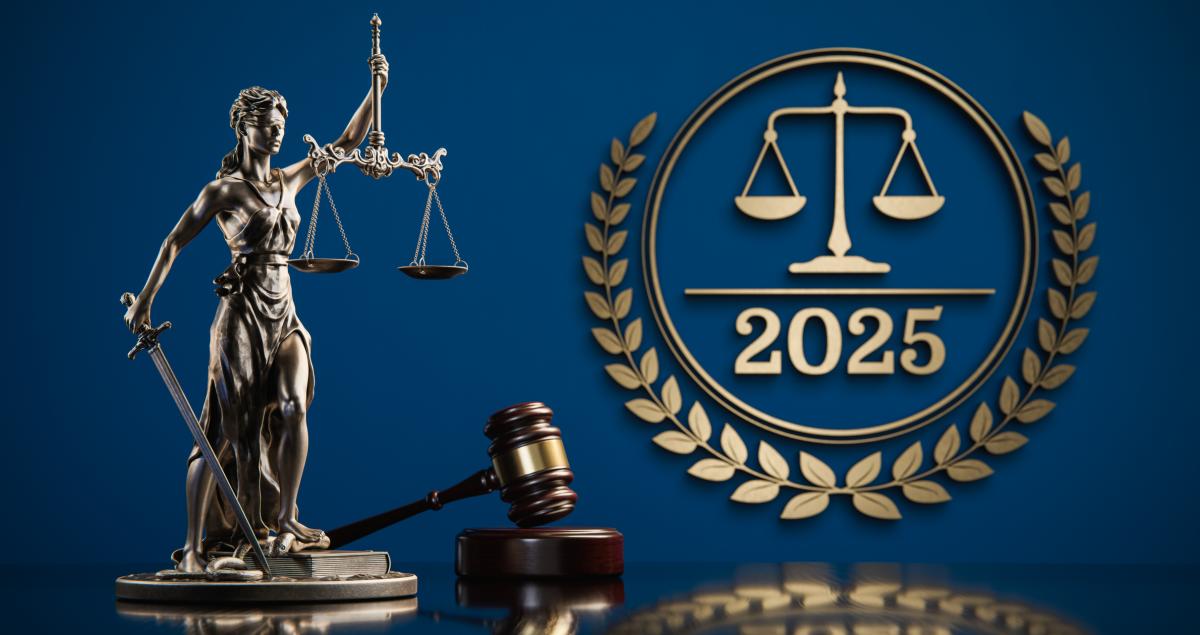Submitted by Friedman Nemecek on

On April 8, 2025, Ohio will implement two new sex offenses designed to combat modern forms of exploitation and abuse. The first law establishes the crime of sexual extortion, which involves coercing an individual into sharing sexually explicit images of themselves. The second law introduces the offense of grooming, defined as a pattern of conduct by an adult intended to entice, coerce, or prepare a minor for sexual activity.
Sexual Extortion
Ohio’s new sexual extortion offense is codified under Section 2905.11(D) of the Ohio Revised Code and expands upon the existing offense of extortion. The statute reads:
No person, with purpose to do any of the following, shall threaten release, exhibit, or distribute the private images of another:
- Compel or attempt to compel the other person, against the other person’s will, to perform any act or refrain from performing any act;
- Induce the other person to commit an offense;
- Obtain additional private images from the other person;
- Obtain anything of value from the other person.
Under the new law, sexual extortion is classified as a third-degree felony in Ohio when committed against an adult. The offense is elevated to a second-degree felony if the offender has two or more prior convictions for sexual extortion or if the victim is an elderly person, a disabled adult, or a minor under the age of 18. If the offender has two or more prior convictions and the victim falls into one of these protected categories, the offense is further escalated to a first-degree felony.
The law also requires courts to consider the physical and psychological impact of the crime on the victim when sentencing an offender. This includes considering whether the victim engaged in self-harm or died by suicide as a result of the extortion.
The statute provides four exceptions to the offense of sexual extortion. These exceptions include:
- A person cannot commit sexual extortion solely by providing access to an electronic method of remotely transferring information not under the person’s control that does not include the creation of the content of the material that is the subject of the access or connection.
- Any person providing access or connection to or from an electronic method of remotely transferring information not under the person’s control is not liable for any action taken in good faith to block the receipt or transmission of any information sent that is or could be considered as sexual extortion.
- There is no affirmative duty for any person providing access to an electronic method of remotely transferring information not under the person’s control to block the receipt or transmission of possible instances of sexual extortion.
- A person cannot be convicted of an offense, and a child cannot be adjudicated a delinquent child, for disseminating private images of that person or child to another person as a result of committing the crime of sexual extortion when the person or child is a victim.
Grooming
With the intent of safeguarding minors under the age of 16, the Ohio General Assembly passed a new law establishing the offense of grooming. This offense, codified under Section 2907.071 of the Ohio Revised Code, provides:
(B) No person who is eighteen years of age or older shall engage in a pattern of conduct with a minor who is less than sixteen years of age and who is four or more years younger than the person, when the pattern of conduct would cause a reasonable adult person to believe that the person is communicating with the minor with purpose to do either of the following:
(1) Entice, coerce, or solicit the minor to engage in sexual activity, and when the person’s purpose in engaging in the pattern of conduct is to entice, coerce, or solicit the minor to engage in sexual activity with the person or a third person;
(2) Prepare the minor to engage in sexual activity, and when the person’s purpose in engaging in the pattern of conduct is to prepare the minor to engage in sexual activity with the person or a third person that would be a violation of section 2907.02, 2907.03, 2907.04, 2907.05, 2907.06, or 2907.07 of the Revised Code.
( C ) No person who is eighteen years of age or older shall engage in a pattern of conduct with a minor if the person and the minor are in any of the relationships described in divisions (A)(5) to (13) of section 2907.03 of the Revised Code, when the pattern of conduct would cause a reasonable adult person to believe that the person is communicating with the minor with purpose to do either of the following:
(1) Entice, coerce, or solicit the minor to engage in sexual activity, and when the person’s purpose in engaging in the pattern of conduct is to entice, coerce, or solicit the minor to engage in sexual activity with the person or a third person;
(2) Prepare the minor to engage in sexual activity, and when the person’s purpose in engaging in the pattern of conduct is to prepare the minor to engage in sexual activity with the person or a third person that would be a violation of section 2907.02, 2907.03, 2907.04, 2907.05, 2907.06, or 2907.07 of the Revised Code.
Violations of subsection (B) of this law are generally punished as second-degree misdemeanors in Ohio; however, the punishment may be enhanced to:
A fifth-degree felony if the victim is less than 13 or the offender supplied alcohol or drugs to the victim;
A fourth-degree felony if the victim is less than 13 and the offender has previously been convicted of a sexually oriented offense or child-victim oriented offense OR the victim is less than 13 and the offender supplied alcohol or drugs to the victim;
A third-degree felony if the offender has previously been convicted of a sexually oriented offense and the offender supplied alcohol or drugs to the victim.
Violations of subsection © constitute a first-degree misdemeanor; however, this punishment may also be enhanced to:
A felony of the fifth degree if the offender supplied alcohol or drugs to the victim;
A felony of the fourth-degree if the victim is less than 13 or the offender has previously been convicted of a sexually-oriented offense or child-victim oriented offense;
A felony of the third-degree if the victim is less than 13 and the offender has previously been convicted of a sexually-oriented offense or child-victim oriented offense OR the victim is less than 13 and the offender supplied alcohol or drugs to the victim.
It is also important to note that the law states a prosecution for grooming does not preclude charges for other violations of the Ohio Revised Code. For example, an individual may be prosecuted for both grooming and sexual imposition arising from the same incident.
If you or a loved one are facing sexual allegations of any kind, we encourage you to call us at 216-270-1976 or contact Friedman Nemecek Long & Grant, L.L.C. We will ensure that your rights are protected at every stage of your case and can help you approach this daunting process with confidence. For more information about Friedman Nemecek Long & Grant, L.L.C., please visit us at www.iannfriedman.com.



